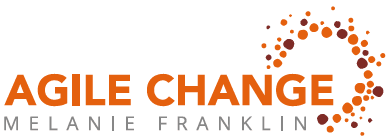Last week I had to give a summary of progress for the last year for a high-profile program I oversee, as there is a new Sponsor. For me, it was a negative experience. As I talked through the outcomes, I felt embarrassed about how many false starts my team and I have had.
I could hear the very strong negative voice in my head (which the Sponsor could not), and it was as if I was replying to these criticisms. He had not voiced anything negative, but I was caught in a loop of justifying out loud why we had not continued with certain courses of actions, including removing suppliers, getting rid of team members and changing the structure and content of the products we are producing.
As a proponent of agile approaches, taking little steps, finding the feedback and learning from it is exactly what I am supposed to do, so why did I feel the need to apologise? This program is high risk, and the organisation has never done anything like this before (they are innovating), so agile is the obvious choice.
As humans, we have a strong driver to claim success and tell others about it because it builds our status. This status is the way the brain reassures itself we can cope with difficult situations, so it is a protection mechanism – our brains think, “when there are problems, you solve them, you can cope, so we don’t need to be on high alert, because when issues arise, you will be OK”

Clearly, as I wasn’t announcing many successes, this part of my brain wasn’t being fed. To be honest, as I talked, I realised I needed to reframe what I was saying, otherwise, my negative, critical voice in my head was setting the tone for my future working relationship with the Sponsor.
I reframed what I said, highlighting the information gained from each “wrong turn” and how we were using the feedback and lessons learnt to deliberately change direction and not continue with a failed strategy or compromised relationship.
It obviously worked because this is the quote from the Sponsor at the end of the briefing:
“I admire you taking action, experimenting, taking the positives from the wrong answer, after all, the wrong answer is always better than no answer”

Based on this, I have high hopes for a very successful program because we are learning from our experiments, often the answers to questions we haven’t even asked because we didn’t know they were important. I am feeling positive, excited and motivated.
If you want to hear more about how to take small steps and divide up big pieces of work into manageable achievements, join me at my free webinar – register to attend live or be sent the recording https://apmg-international.com/events/agile-planning-techniques-made-simple
